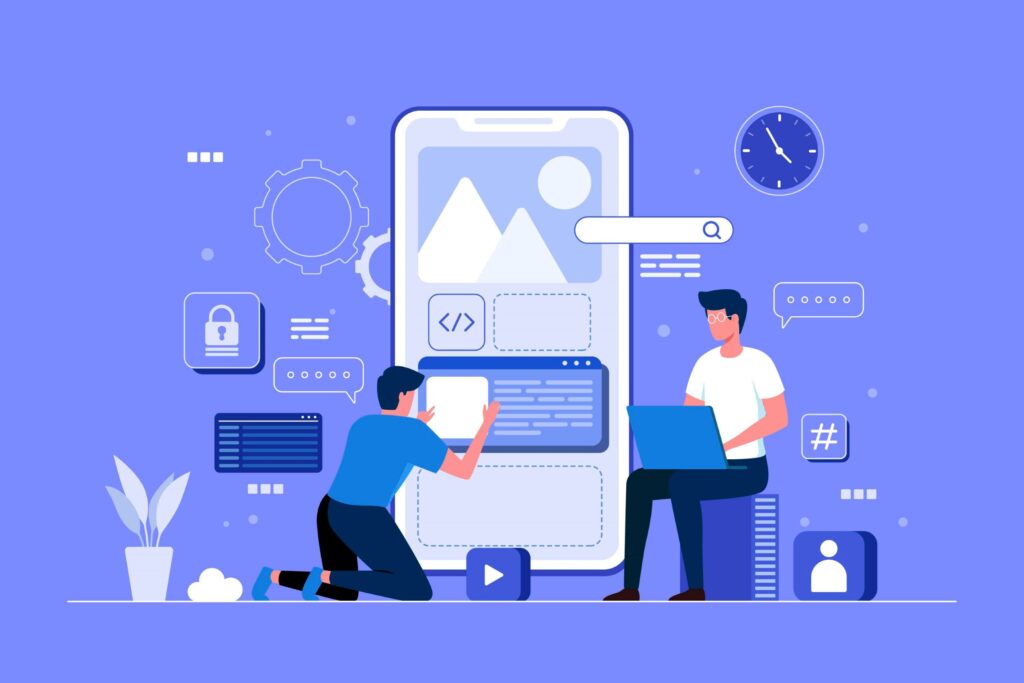Here’s your roadmap to learn app development in 2024:
1. Introduction to App Development
– What is Mobile App Development?
– Types of Mobile Apps (Native, Hybrid, Web)
– Development Platforms (Android, iOS)
2. Setting up the Development Environment
– Android Studio & Xcode
– Installing SDKs
– Emulator/Simulator Setup
3. App Architecture
– Understanding MVC and MVVM Patterns
– Components of a Mobile App
– Managing State in Apps
4. UI/UX Design
– Material Design Guidelines (Android)
– Human Interface Guidelines (iOS)
– Creating Responsive and Adaptive Layouts
5. Layouts and Views
– Layout Types (Linear, Constraint, Frame, etc.)
– Handling Views and View Groups
– Custom Views
6. User Input
– Handling Touch Events
– Forms and Input Validation
– Accessibility Considerations
7. Navigation
– Navigation Patterns (Drawer, Tabs, Bottom Navigation)
– Navigation Controllers (iOS)
– Navigating Between Screens (Intents, Activities, Fragments)
8. Data Storage
– Shared Preferences
– SQLite Databases
– Using Room Database (Android)
– Core Data (iOS)
9. Networking
– Making HTTP Requests (Retrofit, Alamofire)
– Working with APIs (REST, GraphQL)
– Parsing JSON Data
10. Authentication
– Implementing User Authentication
– OAuth & Firebase Authentication
– Social Logins (Google, Facebook)
11. Permissions
– Requesting User Permissions
– Handling Permission Results
– Best Practices for Permissions
12. Push Notifications
– Setting up Push Notifications
– Firebase Cloud Messaging (FCM)
– APNs (Apple Push Notification Service)
13. Working with Media
– Image & Video Capture
– Media Playback
– Integrating Camera and Gallery
14. Location Services
– Fetching User Location
– Using Google Maps & MapKit
– Geofencing and Location-based Features
15. Animations and Transitions
– Adding Animations to Views
– Screen Transitions
– Lottie Animations
16. Handling Background Tasks
– Background Services & WorkManager (Android)
– Background Fetch & Push Notifications (iOS)
17. App Security
– Securing Sensitive Data
– Handling User Sessions Securely
– Protecting API Keys
18. Testing
– Writing Unit Tests
– Testing UI Components
– Debugging and Profiling Tools
19. Monetization
– In-App Purchases
– Integrating Ads (AdMob, Facebook Audience Network)
– Subscription Models
20. Deployment
– Preparing App for Deployment
– Publishing on Google Play & App Store
– Handling App Updates and Maintenance
21. Optimization
– Memory Management
– Reducing App Size
– Performance Profiling
22. Best Practices
– Following Platform Guidelines
– Keeping Code DRY and Modular
– Continuous Integration/Deployment (CI/CD)






